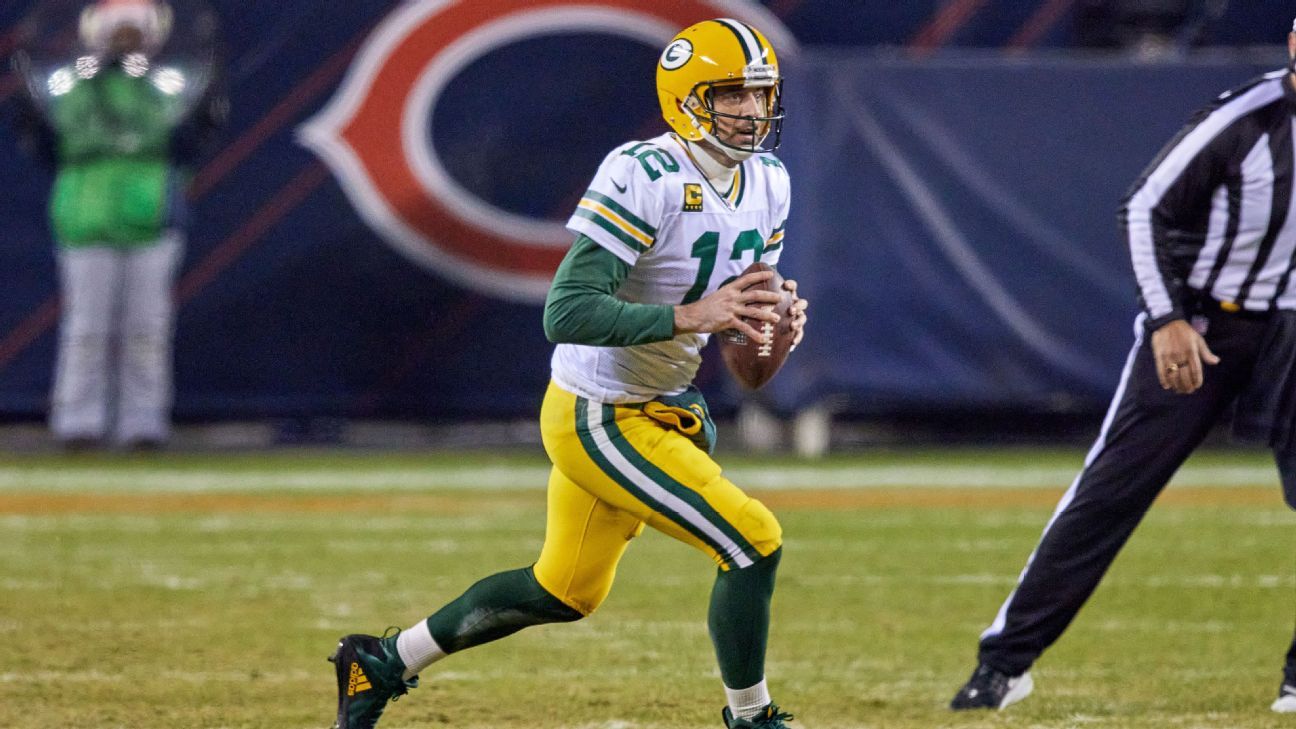GREEN BAY, Wis. — Aaron Rodgers said he could probably name all 16 quarterbacks the Chicago Bears have started since he took over as the Green Bay Packers starting quarterback in 2008, but then must have realized how long it would take him.
“Counting playoffs? Yeah, I could come close probably,” Rodgers said when asked the trivia question during his press conference Wednesday. “Jay Cutler. Kyle Orton. Rex Grossman. Mitch [Trubisky]…”
And then he bailed.
“I’m giving up, I got a meeting to go to,” Rodgers said. “Can’t wrack the memory banks.”
To be fair, only seven of the 16 had actually started against Rodgers.
When Bears rookie Justin Fields starts Sunday against the Packers at Soldier Field, he will become the eighth. He’ll also become the 20th different starting quarterback the Bears have used against the Packers since 1992, when Brett Favre took over as the Packers starter. In that same time, the Packers have used only three different starting quarterbacks against the Bears: Brett Favre, Aaron Rodgers and Brett Hundley.
Only one NFL team has started more quarterbacks since 2008, including playoffs, than the Bears’ 16. The Browns have started 21 different quarterbacks, while the Broncos have matched the Bears at 16.
Don’t expect Rodgers to flip sides in the rivalry even if he forces his way out of Green Bay after this season.
After he spoke at length about how much he likes Chicago — saying, “I’ve always enjoyed the city, enjoyed the fans even though they haven’t enjoyed me. I get it. Maybe there’ll be a little more love when my time comes to an end playing here. But I do have a lot of respect for the city and the sports” — he was asked if he could ever see himself playing for the Bears.
“No,” he said quickly. When pressed with a follow-up, Rodgers said: “It’s just not going to happen.”
Safe to say Rodgers won’t be adding his name to the long list of Bears starting quarterbacks anytime soon.
Sunday will mark the 203rd all-time meeting between the Packers and Bears, including playoffs, and the Packers have a series lead of 101-95-6. The six-win edge marks the largest advantage the Packers have ever owned in the series after they never held a series lead from 1933 to 2016.
